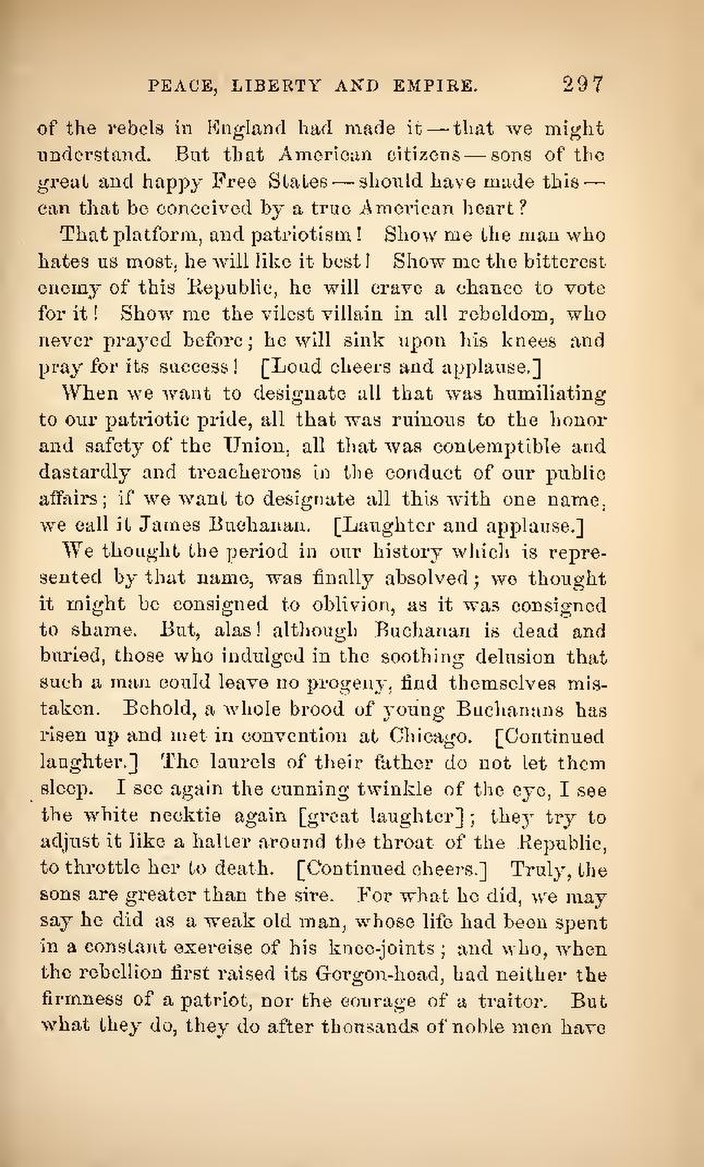of the rebels in England had made it—that we might understand. But that American citizens—sons of the great and happy Free States—should have made this—can that be conceived by a true American heart?
That platform, and patriotism! Show me the man who hates us most, he will like it best! Show me the bitterest enemy of this Republic, he will crave a chance to vote for it! Show me the vilest villain in all rebeldom, who never prayed before; he will sink upon his knees and pray for its success! [Loud cheers and applause.]
When we want to designate all that was humiliating to our patriotic pride, all that was ruinous to the honor and safety of the Union, all that was contemptible and dastardly and treacherous in the conduct of our public affairs; if we want to designate all this with one name, we call it James Buchanan. [Laughter and applause.]
We thought the period in our history which is represented by that name, was finally absolved; we thought it might be consigned to oblivion, as it was consigned to shame. But, alas! although Buchanan is dead and buried, those who indulged in the soothing delusion that such a man could leave no progeny, find themselves mistaken. Behold, a whole brood of young Buchanans has risen up and met in convention at Chicago. [Continued laughter.] The laurels of their father do not let them sleep. I see again the cunning twinkle of the eye, I see the white necktie again [great laughter]; they try to adjust it like a halter around the throat of the Republic, to throttle her to death. [Continued cheers.] Truly, the sons are greater than the sire. For what he did, we may say he did as a weak old man, whose life had been spent in a constant exercise of his knee-joints; and who, when the rebellion first raised its Gorgon-head, had neither the firmness of a patriot, nor the courage of a traitor. But what they do, they do after thousands of noble men have
